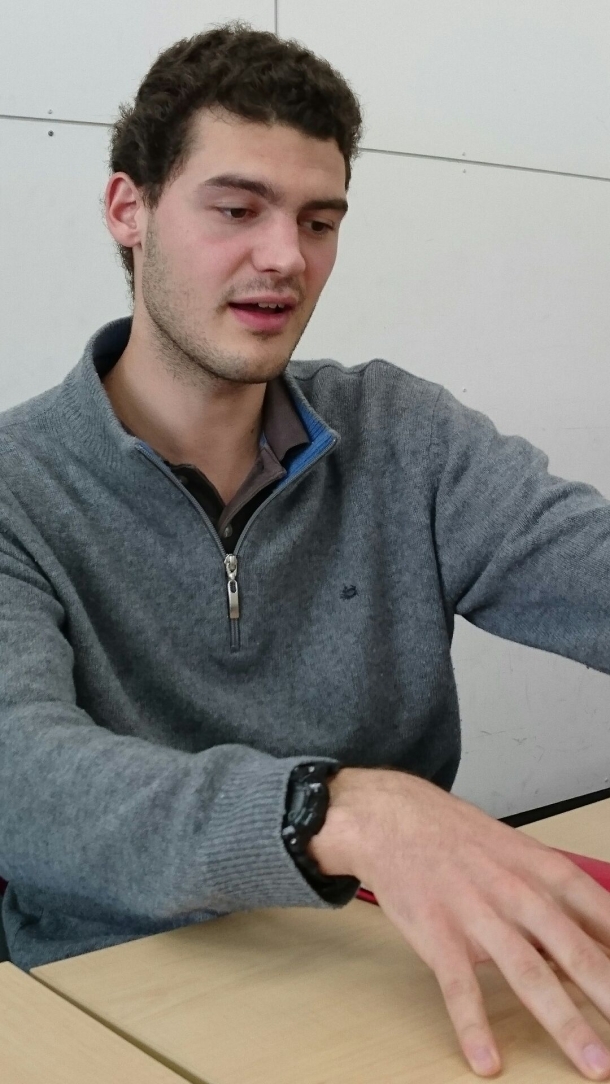- News
- Student Voice: BESUCHET Nicolas
Student Voice: BESUCHET Nicolas
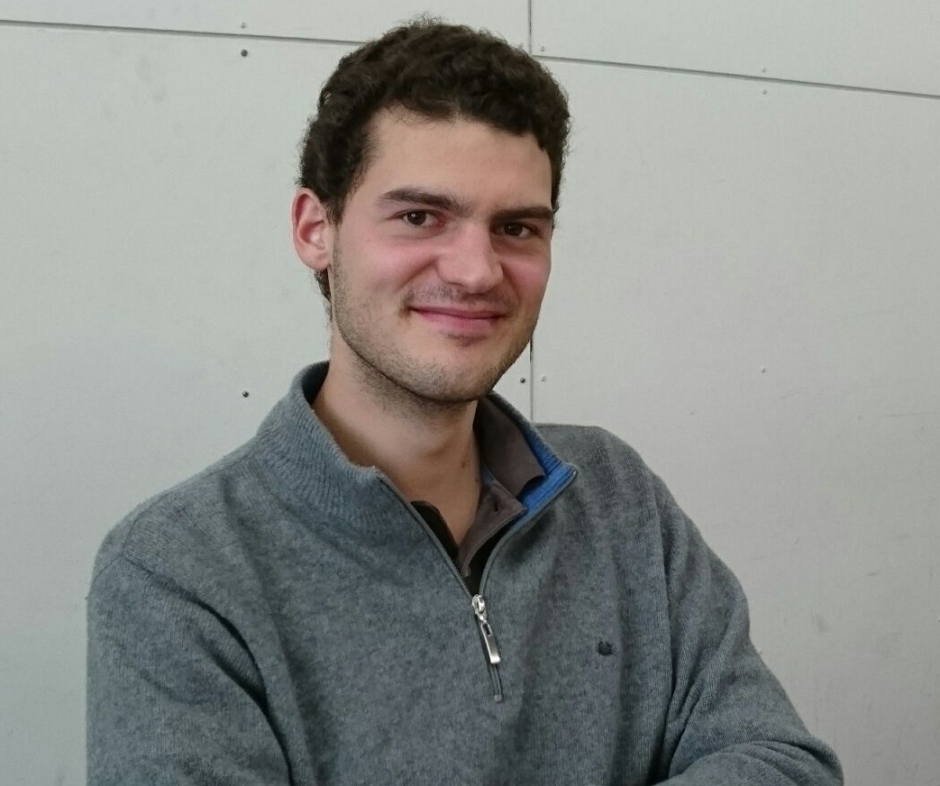
- Posted
- Mon, 03 Apr 2017
From Swiss Confederation
- Name
BESUCHET Nicolas
- Country/ Region of Citizenship
Swiss Confederation
- Graduated from
Swiss Federal Institute of Technology in Lausanne - Department
Department of Modern Mechanical Engineering (Master’s)
Privately-financed student (“Reserved Scholarship for Successful International Examinees” recipient)
How did you find out about Waseda University?
The main reason for me to go to Japan was that I noticed that there was much more lab work in master’s curriculum than in my previous Swiss university where I did my bachelor degree. And to be honest, if in my Swiss university, the master’s level, there is no lab work but there is almost a project. I believe it’s like this in the whole Europe. So this is why I discovered Japan. Master’s program had much more lab work, much more hands-on practice which I found it’s very valuable for education. So this explains why I was interested in Japan. Then there was the next question “which university could accept me” and as I didn’t know well Japanese, I had to avoid the curriculum in Japanese. Then the rest of universities got smaller. I think there were maybe 5 universities and I looked at each professor and finally I found the professor who is now my supervisor doing really interesting research which is why I came to Waseda.
Why did you choose Waseda University?
I really would say it’s due to my professor. What we do in engineer research is you have a problem which has been well explored and there is already a solution. But basically most research does just taking this problem and inclemently increases the efficiency of the problem. It’s not radical new design. What my professor proposed is to explore much radically more different design and he proposes philosophy as a background. And having philosophy in engineering such as “why are we doing this?” and “why is this important for society?” is missing. “Let’s make it”, because he is cool, that is the basic argument. When we were talking on the skype, he was giving me fantastic books to read. It was fantastic to have a teacher talking about design what we should create etc.
And I think that’s also the great reason to come to Japan due to the selection process. You first discuss with your professor. Basically you select what you are going to research and then you apply. But other universities such as my Swiss university for PhD, they go to the university and they say they would like to do a PhD and then they apply to a lab which is much more restrictive. There is much more chance of not doing something that we would like to do in the end. Doing the opposite way as it is done in Japan is really interesting.
How did you get information for our program?
Of course I did it via internet and the MEXT website. They have a list of graduate courses in English. Then I went to Waseda website and found the list of professors.
Did you have any concerns before coming to Japan?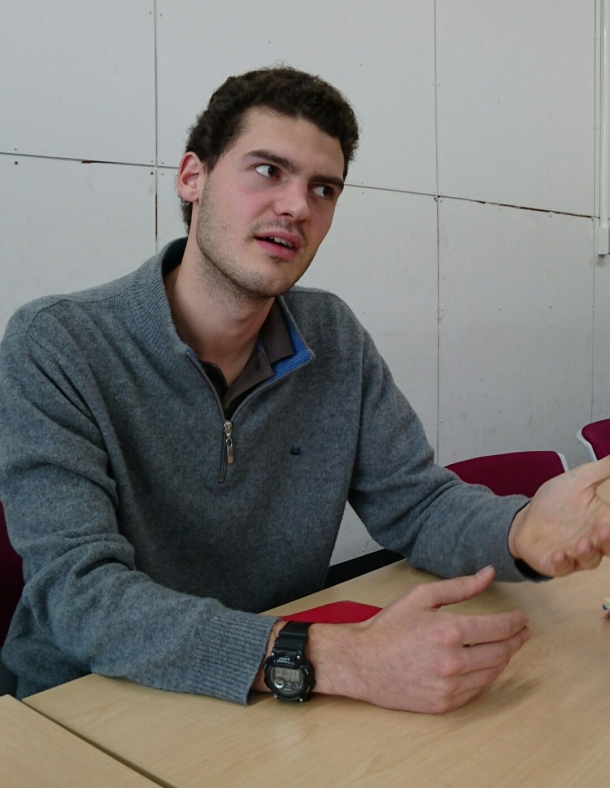
Yes, obviously the language. Surprisingly this is not a social problem that I would have thought it would be. The language and culture would be also concerned. At the beginning I was afraid to have Japanese courses to take, but I am taking them because it’s more interesting and fun.
Basically what I’m trying to do is maximizing my Japanese skills, not going for courses. I don’t think the courses are the good way of learning language. I have never studied languages via classroom. Now I am focusing on oral and listening skills and just want to be able to speak with people. So I’m trying to learn by myself. A few months ago, I went to Fukushima to do some volunteering for 2 and a half months. After the first month, I didn’t notice a lot of progress, but after the second month, I was starting to understand what they were saying.
Have you had any difficulties when you started a new life here?
I guess I was well prepared extensively and I came here one week before the course began. I already had everything prepared before a week and was ready to go and set after 3 days. The difficulty was probably administration in Japanese.
How is your life in Japan and Waseda?
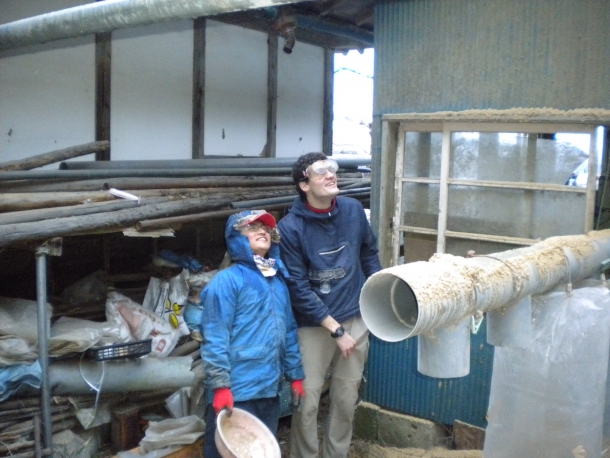 Research-wise, it’s a dream. And academic-wise, it’s absolutely fantastic. I have the subject which really makes me wake up every morning even I dreamed of it at night.
Research-wise, it’s a dream. And academic-wise, it’s absolutely fantastic. I have the subject which really makes me wake up every morning even I dreamed of it at night.
So I think it’s really interesting in the research-wise and the course-wise.
Friendship-wise, there is still progress to be made. I have been joining circles and the lab itself. I’m basically really satisfied.
What do you do in your free time?
My hobby is engineering, so it is my free time. I join a whistling circle and a theater comedy club at Waseda University. Otherwise I basically go sightseeing in Tokyo with my girlfriend during the weekend. I really like cooking and do every day. I like creating stuff and cooking is also the same.
How are the relationships with your supervisor and lab members?
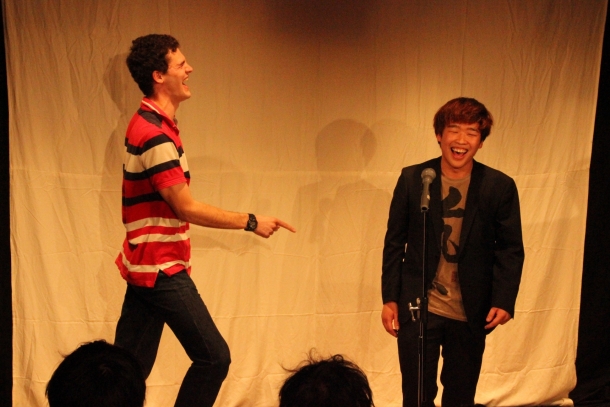 I think they are really good. All the lab members speak Japanese and sometimes I have difficulties in joining their conversations. Now I’m starting to slowly be able to join the conversation to have jokes. With my supervisor, I think it’s really great and interesting. For the first time, I have somebody who I can speak about design and engineering problems and he would like to suggest me to read books and having this feedback. I think all the lab members really enjoy my professor. We are doing a joint seminar next month in another prefecture. Also we have sometimes an OB-kai (a party with previous graduate students) and a welcome party which is very heartwarming. And there is also normally a special activity made by the lab every year.
I think they are really good. All the lab members speak Japanese and sometimes I have difficulties in joining their conversations. Now I’m starting to slowly be able to join the conversation to have jokes. With my supervisor, I think it’s really great and interesting. For the first time, I have somebody who I can speak about design and engineering problems and he would like to suggest me to read books and having this feedback. I think all the lab members really enjoy my professor. We are doing a joint seminar next month in another prefecture. Also we have sometimes an OB-kai (a party with previous graduate students) and a welcome party which is very heartwarming. And there is also normally a special activity made by the lab every year.
Outline of the research
My research relates to various projects conducted simultaneously in relation to electric motorisation. This is in order to democratize the engineering of mechanical machines such as robots.
Imagine yourself a modern humanoid robot -in other words the pinnacle of mechanical complexity. For a large degree, the complexity of that robot lies in the transmissions. Indeed, the gears, levers, pulleys that constitute a transmission occupies a far greater volume than its driving motor. And so, imagine that you possessed an extremely compact servomotor. That servomotor -by its shear compactness yet hi-torque- could enable you to drive any given robotic articulation by having the servomotor directly imbedded within the articulation. Hence no more need of complex levers, cables and so forth. Thus greatly simplifying the robot’s design.
Yet again, imagine that this highly compact servomotor (as compact and performant as hardened steel harmonic driving servomotors) that can have its gears 3d printed cheaply in plastic -from as small as 20mm in diameter up to 120mm in diameter. By its cheapness, hi-strength & small size, it results in far more simple, accessible, cheap designs. In such a way that engineers -as well as non-engineers- increase their chances to make their ideas come to life. And this is what we mean by “democratizing engineering”.
What is your career goal after your degree completion?
I don’t know yet. I don’t know if I want to do PhD or if I want to join a company. Basically my main aim is having the interesting meaning for work not just for me but for others as well. I don’t want to be stuck in a company.
Short message to the prospective students
in English
Hi there!
I’ve been at Waseda for 1 semester and it has turned out to be a blast! To be honest, I was tired of the Swiss technical universities with mostly courses or interesting yet useless short term projects. On the contrary, at Waseda master courses are scarce enabling full participation in our very own projects who’s topic are chosen by ourselves. Hence if you like projects as I do, you’ll love Waseda.
To my surprise, Japanese isn’t such a problem… Even if you can’t utter a single grammatical sentence as I do! In fact, 4 out of 5 courses were entirely in Japanese last semester! As most teachers allow reports as well as presentations to be written in English, it’s fairly easy to follow along.
Finally Waseda has tons of student “societies”. There’s even a group that’s building a human powered airplane!! Impressive.
Hell yes, welcome to Japan.
in French
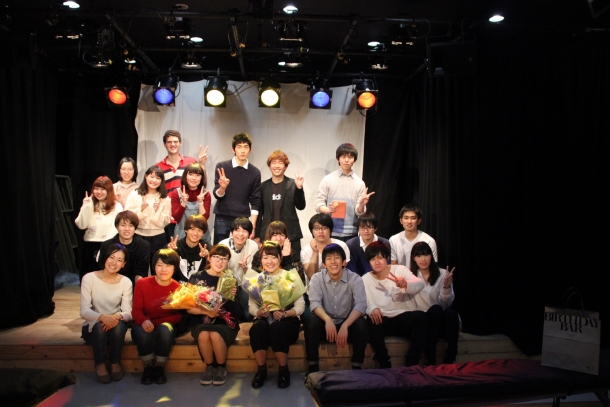 Bon, qu’ai je a vous dire de plus en francais? Tout d’abord il faut savoir que les universités Japonaises ont des curriculums relativement aisé comparés à une université “matheuse” comme sont les Polytechniques (je viens de l’EPFL en Suisse) et les universités Francaise en générale. Et comme le 70% du temps d’étude se dédie (au niveau masters) à un project de votre choix, vous pouvez vous consacrer à fond sur votre projet! Et moi, m’a me plait beaucoup!
Bon, qu’ai je a vous dire de plus en francais? Tout d’abord il faut savoir que les universités Japonaises ont des curriculums relativement aisé comparés à une université “matheuse” comme sont les Polytechniques (je viens de l’EPFL en Suisse) et les universités Francaise en générale. Et comme le 70% du temps d’étude se dédie (au niveau masters) à un project de votre choix, vous pouvez vous consacrer à fond sur votre projet! Et moi, m’a me plait beaucoup!
L’admission dans Waseda n’est pas trop exigeant il me semble. Notamment parce que pour les professeurs cela fait bonne image d’avoir une étudiant étranger qui intéresse à leur labo.
Quant au Japonais, personnellement je suis le seul étranger dans mon labo (40étudiants). Et je dois parler Japonais pour me faire comprendre avec mes collègues (le prof parle anglais toutefois). C’est drôle! Aussi, j’ai décidé de prendre tout mes cours en Japonais sauf un. En comprenant grosso modo ce que les profs présentent et en rédigeant les rapports en anglais, ca va très bien. Vous seriez surpris en bien!
Si vous doutez de votre niveau de Japonais, passez 3mois dans une ferme Japonaise recluse à la campagne avant vos études et vous aurez sans doute un niveau suffisant pour vos études et vie à Waseda!
Toutefois, en choissant un labo avec quelques étranger, il est tout à fait possible de s’en sortir seulement en parlant anglais. Bien sûre il y a des cours en anglais. Peu, certes, mais de quoi faire son curriculum. J’en connais 3 étudiants qui font comme ca.
Sinon, si vous aimez les projects, je ne peut que vous conseiller d’étudier au Japon! C’est géniale.
Archives
- Tags
- Student Voices

